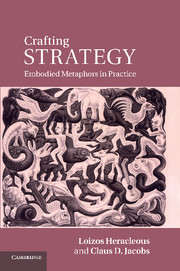Vignette E - Privatbank IHAG Zürich AG
Reviewing client relationship practises and team roles
Published online by Cambridge University Press: 05 June 2011
Summary
Context
In October 2009, the head of a private banking team in Privatbank IHAG Zurich AG invited his four team members to a yearly one-day team workshop. Due to several retirements over the previous three years, the team membership had changed significantly and consisted mainly of recently hired staff. Thus, this year's workshop aimed at providing an opportunity for all team members to develop a shared understanding of how to best serve private banking clients as well as to critically reflect on the team's collaboration.
Strategic goal of intervention
Private banking, being a complicated and complex business, understanding the needs of wealthy clients is critical to success. While the team might share some professional commonalities, it seemed to differ in the underlying values of its members. Front-line staff in private banking not only require good sales skills but also equally, if not more importantly, relationship management skills, as well as detailed content expertise. Thus and in view of increasing client needs and expectations, private banking requires a holistic approach to wealth management that combines competency, flexibility, and convenience to the client. Thus, the specific goal of the intervention was to raise the team's awareness of these current and future requirements and to prepare the team for impending changes.
- Type
- Chapter
- Information
- Crafting StrategyEmbodied Metaphors in Practice, pp. 173 - 176Publisher: Cambridge University PressPrint publication year: 2011



